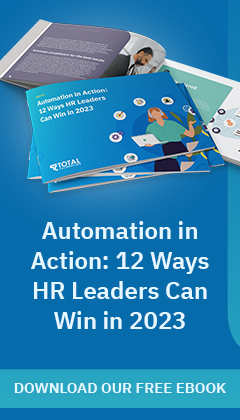Performance reviews are a pillar of human resource (HR) management because these help management identify and reward top talent. Performance reviews may sound boring, but these have a big role to play in the growth of a company, given that top talent is integral to any company’s success. Any truly meaningful performance review will help cultivate talent by helping employees know their responsibilities better, evaluate their performance against clear standards, identify ways to do their job better, chart growth within the company, and justify better compensation. Let’s take a look at what HR managers can do to conduct effective performance reviews.
Appreciate their impact on the company
To conduct excellent performance reviews, HR professionals have to appreciate the impact of performance review data on business decisions. Performance review data can affect employee performance, prospects for increased compensation, and career advancement. Company decisions following this data can also have an impact on employee morale and happiness, and ultimately on the bottom line of the business.
This is why HR experts insist that managers do more than simply tick boxes on an evaluation sheet. Instead, reviews must become discussions about improving performance, setting goals, and seeing results.
Create standards for assessment
Each role should be divided into several aspects, such as attendance and other key performance indicators. This is important because employees may be strong or successful in some aspects of a job but need improvement in others. It also fosters a better understanding of performance expectations and areas for improvement. Feedback will likewise be more well-defined with specific areas to reward and to offer constructive feedback upon.
Clearly define evaluation standards, and explain to reviewees how you've been tracking their performance to show how well they have been meeting those standards. Reveal factual and measurable results during the review, such as the amount of work done at or beyond an acceptable level of quality during the review period.
Lastly, an effective review must not be focused on vague standards like “high potential,” but rather on the overall performance of the employee during a specific time frame. If the period reviewed is one year, then one month of exceptional or poor performance must not outweigh the other 11 months, especially when making judgments (on promotions, demotions….)
Prepare for the review
A manager must be well-prepared for the review so that it can be effective. Preparation entails getting well-rounded feedback from colleagues who work closely with the person being evaluated. It also entails taking a look at a list of goals set in their last performance review, requesting a self-assessment of progress toward those goals, and noting performance issues in specific projects and tasks.
Ask employees to evaluate themselves, then compare the results of self-assessment with the rating you gave an employee. Sometimes the employee cannot objectively evaluate different aspects of their performance. Some tend to give excuses for their low performance; others might think that excellence in just one aspect of the job automatically makes them high performers. Comparing the assessment results is a good starting point for a discussion.
Engage employees
An effective performance review does not center around an evaluation form. It is a two-way conversation. It is not an interrogation and criticism session, where flaws and weaknesses are the focus. This conversation entails recognizing accomplishments and reinforcing good performance. However, it doesn’t mean sugarcoating problems and areas for improvement. This means giving specific examples when discussing a problem and together developing a plan to perform better.
And then work together to create goals for the future. A conversation on goals means working together to create a written plan for future career growth, thereby establishing a means for measuring future performance and motivating. Part of this plan is identifying training opportunities and resources for skills. If an employee can leave the review motivated, then it has been successful.
Implement Lanteria
To help you conduct performance reviews efficiently and effectively, use Lanteria HRIS. Made by our top-notch developers at Netquest, Lanteria is a SharePoint-based HR management system that streamlines and automates all of HR's essential functions, such as payroll and employee database management. Contact our experts to learn more about what Lanteria can do for your organization.


